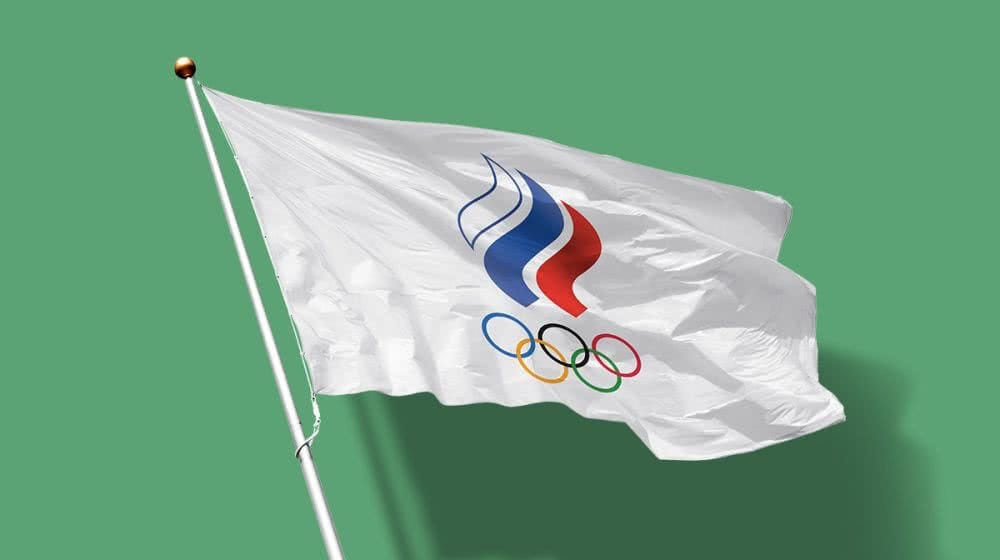ROC Olympics: Will The Russian Flag Fly Again?
The Olympic Games are the pinnacle of global sports competitions, where athletes from different countries come together to showcase their skills and compete for the highest honours, and ROC Olympics participation has become common as of late.
The 2020 Tokyo Olympics, postponed to 2021 due to the COVID-19 pandemic, have been making headlines for another reason – the controversy surrounding the Russian Olympic Committee (ROC). In this article, we will discuss what’s happening with the ROC, the anti-doping case, the IOC’s statements, and the future of Russian athletes.
What’s Happening With The Russian Olympic Committee?
In 2018, the world was stunned when it was revealed that the Russian government had been involved in a state-sponsored doping scheme.
This led to the Russian Olympic Committee being banned from participating in the Winter Olympics held that year in South Korea. Since then, the International Olympic Committee has allowed Russian athletes who pass drug tests to compete as “Olympic Athletes from Russia” without their national flag or anthem.
The situation has continued into the Tokyo Olympics, where Russian and Belarusian athletes compete under the ROC flag, rather than their respective nations, due to both countries’ ongoing ban from global competitions by the World Anti-Doping Agency.
The ROC was approved as a team with each Olympic athlete competing as a neutral athlete for the 2020 Tokyo Olympics, and its athletes can compete under a generic Olympic flag as “ROC athletes.” The situation has left many wondering if we will ever see Russian and Belarusian athletes compete under their respective national flags again, or if we are destined for a future of summer Olympic Games without their representation.
The Anti-Doping Case
The Russian Anti-Doping Agency (RUSADA) was suspended in 2015 following a doping scandal that revealed a state-sponsored doping scheme to enhance many a Russian athlete performance, prompting condemnation from the global anti-doping community.
In 2019, WADA discovered that Russia had tampered with data from its Moscow laboratory, and in December 2019, WADA banned Russia from international sporting events for four years.
The ban meant Russian athletes couldn’t represent Russia at the Olympics, Paralympics, and world championships under the Russian flag and anthem. Russia appealed to the Court of Arbitration for Sport (CAS), which reduced the ban to two years.
The CAS allowed Russian athletes who can prove they have not been involved in any doping schemes to participate in the Olympics and other international competitions under a neutral flag.
What Has The International Olympic Committee Said?
The International Olympic Committee (IOC) has recommended returning Russian and Belarusian athletes to international sporting events as neutrals, but only as Individual Neutral Athletes, without displaying their national flags or making statements that could harm the competition’s integrity or their neutrality.
The IOC’s decision does not apply to the upcoming Olympic Games in Paris 2024 or the Olympic Winter Games in Milano Cortina 2026, and the IOC will make the final decision on their participation at the appropriate time.
The criteria were called “unacceptable” and discriminatory by Russia’s head of the Olympic Committee with the backing of Russian President Vladimir Putin, while Ukraine threatened a boycott, and sports politicians from over 30 countries opposed the return of athletes from the two countries.
The IOC reiterated its condemnation of the Russian invasion of Ukraine and that the sanctions against those responsible for the war, the Russian and Belarusian states and governments, must remain in place.
Russia and Belarus remain unable to organise international sporting events on their territory, and no flag, Russian national anthem, or any other identifications of these countries can be displayed at a sporting event or meeting. Additionally, no Russian and Belarusian government or state official can be invited to or accredited for any international sports event.
The IOC’s recommendation follows the lifting of an eight-year doping ban on Russia by World Athletics. The Russian Athletics Federation was banned in 2015 after the discovery of massive, state-sponsored doping and cover-ups.
The Future For Russian Athletes
It is unclear if Russian athletes will ever be able to compete under their own flag again and represent Russia. It depends on whether the Russian authorities take steps to clean up the country’s doping program and satisfy WADA’s conditions for reinstatement.
The IOC has indicated that it wants to work with Russia to address the doping issue and help the country comply with international anti-doping regulations and have them as a nation under the Olympic rings.
Whether or not Russian athletes can compete under their own flag again depends on how quickly Russia can meet the necessary conditions and demonstrate a commitment to clean sport.
Conclusion
In conclusion, the ROC Olympics have once again put the spotlight on the issue of doping in sports. The Russian Olympic Committee’s ban has prevented Russian athletes from competing under their own flag and anthem at global competitions, including the Olympics.
The future for Russian athletes depends on whether the country can satisfy the anti-doping agency WADA conditions for reinstatement and demonstrate a commitment to clean sport.
The IOC has expressed a desire to have Russian athletes participate in global sporting events, but it remains to be seen whether Russian athletes will be able to compete under their own flag again and lift a gold medal for their country.
For the best sports betting options, head over to our sports page.
